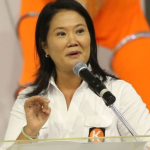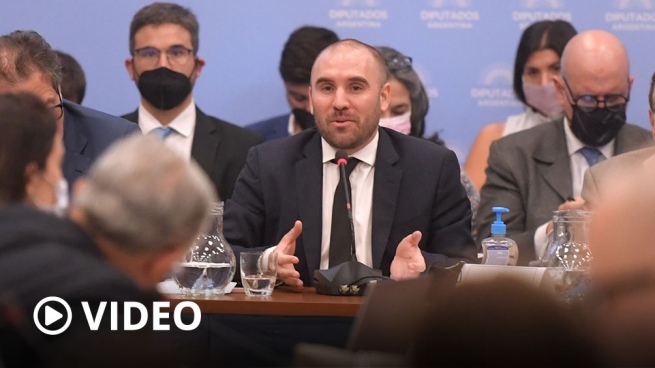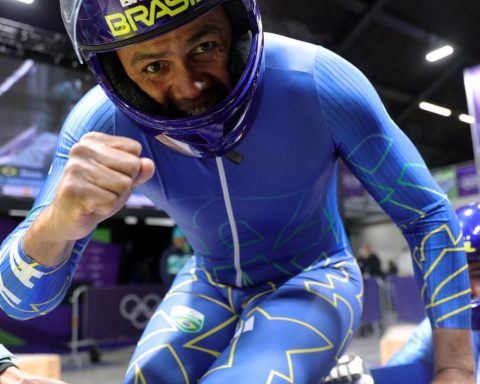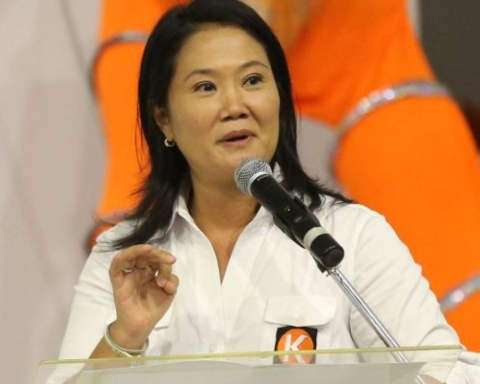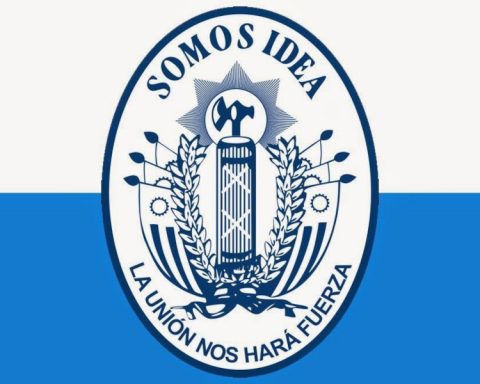Ludwika Vega has recorded in her mind three memories that still permeate her, two of them were during her childhood and one as an adult. The teasing of her classmates at school and her family who told her that she had “girlish manners”.
The third is the most recent, but not the least painful, and has to do with the attempted murder of which he was a victim in 2019 and for which there was never justice. The nightmares stayed with her for months, she says.
At that time, Vega was savagely attacked by two men on a motorcycle who intercepted her when she was leaving the offices of the Nicaraguan Association of Transgender Women (Anit), where she is president.
They hit her in the face with a stone, detaching her teeth and causing her to bleed. Later, the strangers attacked the activist with a sharp object, causing five wounds: one next to her chest, three on her back and another on one of her sides.
“I still have nightmares about it,” says Vega, 38, who has no regrets about being a transgender women’s rights advocate.
The activist escaped the fate of her partner “Lala”, a 22-year-old Nicaraguan transgender woman who was cruelly murdered in 2021 by two men who dragged her tied to a horse for several meters, and then took her life with stones.
And although those responsible were sentenced to life in prison, Ludwika hopes that the sentence will be carried out.
“They have to be complied with. Then they say that because he behaved well, we are going to release him. No, because the lives of the compañeras are not recovered, ”she said.
Homosexuality was criminalized in Nicaragua less than two decades ago
Looking back and seeing the achievements that the LGTIQ community has made in Nicaragua is amazing, says Vega. Homosexuality has been barely legal since 2008, a year after Daniel Ortega took power. Previously, the Penal Code punished the crime of “sodomy” with prison.
However, the LGBTIQ community emphasizes that, with Ortega, although there was progress, legislation for the recognition of transgender women was pending, such as a gender identity law, as well as the recognition of equal marriage.
“My legal name is Guillermo and that is how they legally recognize me,” laments Vega. “In order to travel I have to use a passport that says Guillermo, to collect I have to do it with a check that says Guillermo. I have already had problems both in banks and in many other places because when I arrive as I am naturally dressed every day, they get confused.
In fact, she mentions that the lack of identity has left many transgender women unemployed, since there are no policies that make companies respect sexual diversity. Vega, for example, graduated with a bachelor’s degree in marketing, but her legal name appears on her diploma.
“Job opportunities are limited, if not for the same projects that we have been working on and we can receive [fondos] we do not work; and the projects take four, five, six months. It is rarely a year or two years. So they are temporary jobs, they are not fixed salaries,” she stressed.
Sociologist María Teresa Blandón, who has worked for decades on gender issues, is emphatic in acknowledging that there are still challenges in Nicaragua to recognize trans women or “a different body.”
And this has to do with the fact that there is a very conservative society, like the Nicaraguan one, Blandón points out, “where people feel authorized to condemn, stigmatize, reject and discriminate against bodies that do not submit to the binary order and to the heterosexist”.
“They present these bodies as if they were abnormal bodies and, in many cases, as if they were bodies of sin or crime, because they place them on the margin of morality and they also place them on the margin of the law. So it is very difficult because there is a lot of symbolic violence that is present everywhere and that often translates into textual violence and as justifications for discrimination.”
Vega says society doesn’t see it as normal for her to be a transgender woman.
“Many times we have gone for a consultation and when you ask for a prescription or an order for an exam, they give you a brochure that says ‘Christ loves you.’ I am a believer, I believe in God, but I am not a fan of coming to condemn someone because he wears tattoos, because he uses drugs, because he has an abortion.”
The broken promises
When the leftist government of Daniel Ortega returned to power, there were promises that were made even during the campaign to recognize the rights of the LGBT community. The activists mention that, in a way, some demands were met, but on the other hand there were lies.
“Many of the activists of this movement somehow had expectations that their demands and that their rights would be recognized,” recalls sociologist Teresa Blandón.
In fact, a year after Ortega came to power, positive changes took place, such as the repeal of “sodomy.” Later, for the first time in the history of Nicaragua, a special attorney for sexual diversity was created and a lesbian activist was put in charge.
But over time, the disappointment became more palpable.
“Progressively, the community became disenchanted. For some time, the diversity attorney even promised the groups that they were going to work and present a gender identity law, but she did this for more or less 10 years and the bill never came out, and when We asked her what the status of the draft was, because she answered us evasively”, recalls Blandón.
Firm in the midst of storms
Vega, however, continues her fight in the midst of storms and tempests. The impunity that remained with her case says that she did not stop her and in fact she works giving talks to some trans women about the importance of acceptance and self-care.
She recalls that in Nicaragua there have been several hate crimes against trans women, therefore she warns that we must not lower our guard and calls on her colleagues to file complaints with the corresponding authorities, although she recognizes that it is a difficult process.
“There is a fear on the part of the compañeras because the judicial or police system makes fun of our complaints, whatever type of complaint it is. Be it due to family feeling, emotional, loving, partner feeling, or where the case of violence comes from. All the cases that have been reported to the police are said to be cases of sentimental situations, that their husbands beat them,” laments Vega.
According to a report by the NGO La Corriente, from January to September 2021 in Nicaragua there were at least 57 situations of discrimination against the LGBTIQ community, most of which have been against transgender women.
There is no official information from the State in this regard.
Connect with the Voice of America! Subscribe to our channel Youtube and turn on notifications, or follow us on social media: Facebook, Twitter and Instagram.
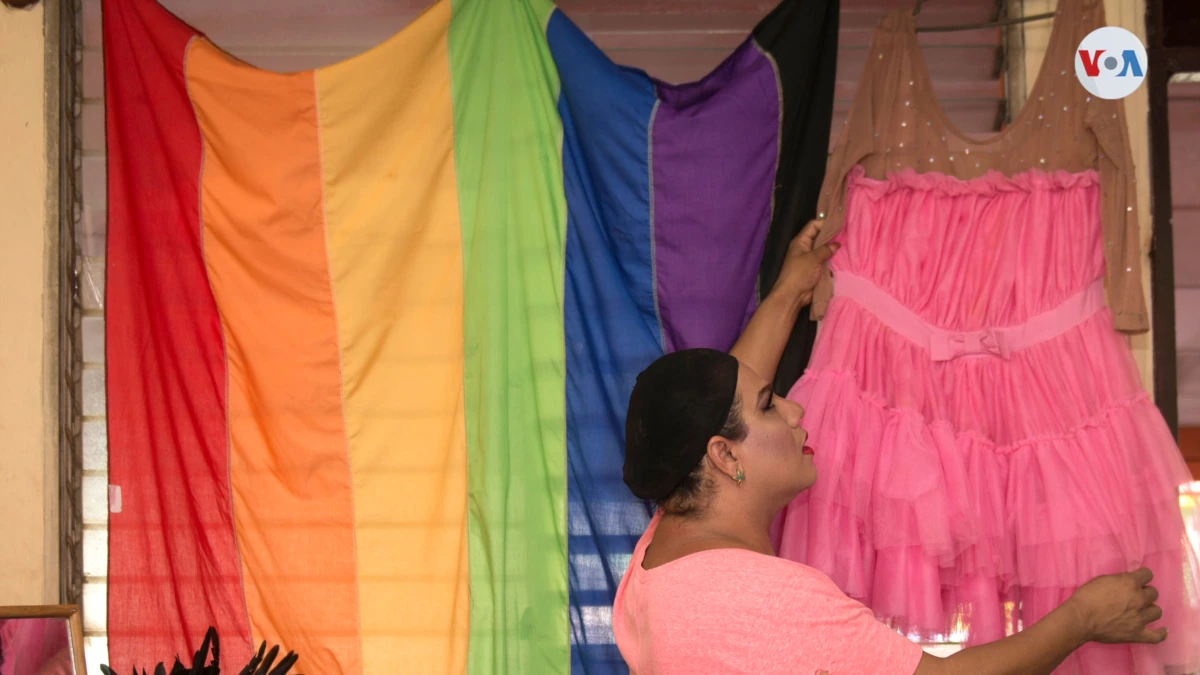
![Being a trans woman in Nicaragua: "Constant fight to combat stigma” Ludwika Vega has won several contests as a trans woman. [Foto VOA].](https://gdb.voanews.com/093a0000-0a00-0242-0a67-08da00783ead_w250_r1_s.jpg)









